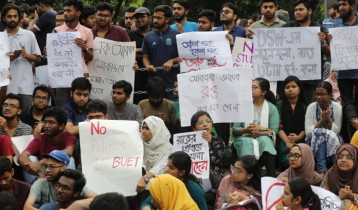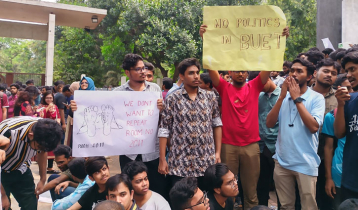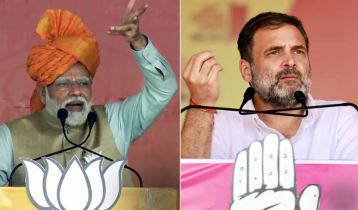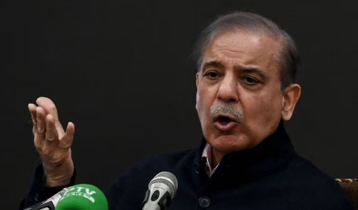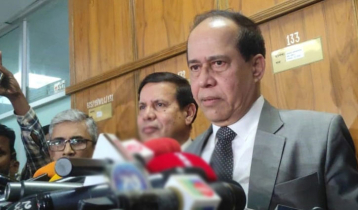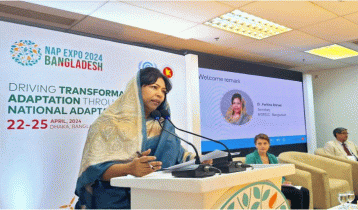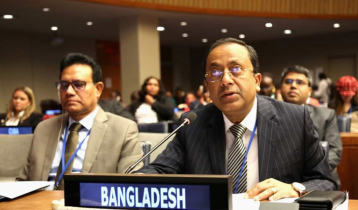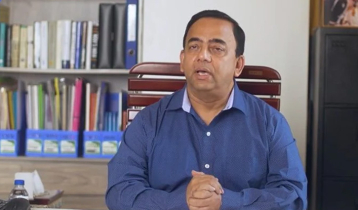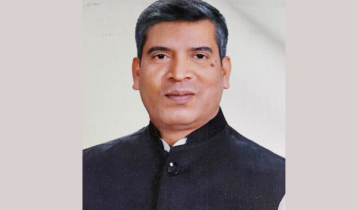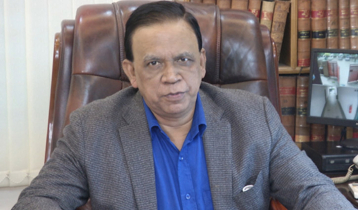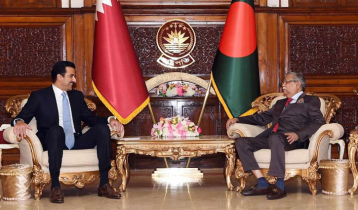End of Qatar blockade: Peace in the Gulf?
Kazi Fahim Ahmed || risingbd.com

Peace talk has finally been started in the Gulf region to end a three-year blockade of Qatar by its neighbor Arab states. Kuwait and the United States have been trying to mediate the rivalry between the Gulf countries.
In its final hours at the white house, the Trump administration is trying to make peace between its Middle-East allies. Talks between Saudi and Qatari officials have taken place with an optimistic result as the Saudi foreign minister indicated that an arrangement was "within reach". But how this rivalry between the Gulf States will completely end is still unknown.
Many may ask why the US is mediating here. First of all, the US is trying to resolve that issue for mainly two reasons. The United States is struggling with its Middle-East policy for the rivalry between Qatar and the other Arab States. On the other hand, the Trump administration wants to achieve its last moment diplomatic victory in the region.
The three-year-long blockade of Qatar started in 2017 when the UAE, Saudi Arabia, Bahrain and Egypt called for an embargo on Qatar and cut off their diplomatic relations with Qatar. They also put restrictions on land and air transportations. They accused Qatar of supporting "terrorism".
The boycotting states set 13 demands to lift the blockade. Their demands include the closure of the Al Jazeera Media Network, shutting down a Turkish military base in Qatar, decrease ties with Iran and cutting off the relations with the Muslim Brotherhood which is believed to be responsible for Arab Spring. Nonetheless, all of the allegations were denied by Qatar and it has also referred to these demands as a direct attack on "Qatar's sovereignty".
The recent initiative of peace talks between Saudi Arabia and Qatar is a good sign for both parties but it is believed that other blockading countries like the United Arab Emirates and Egypt are cynical about any agreement with Qatar. They are not willing to lift the blockade.
The Crown Prince of the UAE, Mohammed bin Zayed is the main player behind the Qatar blockade. He is the man who took the initiative to punish Qatar. There are several conflicts in the region where Qatar and the UAE had backed opposing parties. Egyptian dictator Fattah Al-Sisi has also a direct rivalry with Qatari leadership.
Previously, Qatar's support for the Muslim Brotherhood had angered the leadership of these blockading states. Because Muslim Brotherhoods' success in the Arab Spring had created fear among these Monarchs and dictators of a similar uprising in their kingdoms. As a result, they named the Muslim Brotherhood a "terrorist organization" and later they punished Qatar.
After all of these ups and downs, Saudi Arabia is now willing to reach an agreement with Qatar for several reasons. As Saudi Arabia's close friend President Donald Trump is leaving the white house soon, it needs to prove itself as a peacemaker to the new US administration.
It is believed that President-elect Joe Biden will take firm decisions over Saudi leadership. So, Saudi Arabia wants to show itself open to any future dialogue by resolving the Qatar blockade.
Saudi Arabia also wants to regain its leadership position as it fears losing its influence over several events including Arab-Israel ties and war in Yemen. It wants to manage all the Gulf States under its unilateral leadership.
On the other hand, this peace talk with Saudi Arabia means a lot to the Qatari government. Economically strong Qatar has successfully passed the blockade with the help of its regional partners Turkey and Iran. It is still unknown how Qatar will trade-off any agreement with Saudi Arabia. Because Qatar's ambition here is far larger.
Qatar has proved itself as an essential mediator in several regional issues. It wants to play a big role to resolve these issues with the United States. Qatar is also mediating the ongoing peace deal between the Taliban and the United States.
Experts say that after the killing of Iranian General Qassem Suleimani by the US, Qatari Emir Tamim bin Hamad Al Thani traveled to Tehran to call for restraint over any escalation.
It is believed that Qatari Emir was then asked by the US to mediate with Iran to avoid any possible war between the US and Iran. So, Qatar remains an important mediator for the upcoming Biden administration as Joe Biden has promised to rejoin the Iran nuclear deal.
Other regional issues such as US-Turkey tension, Syria, and Libya conflicts can also be mediated by Qatar. Because Qatar has a very good relationship with Turkey which can be used to end recent tension between Turkey and the US.
It has also good relations with Syrian rebel groups and the UN-recognized government of Libya which gives Qatar extra leverage to act as a mediator and an important ally for the United States in the region. So, any successful peace agreement with the blockading countries will give Qatar leverage to acquire its ambition in the region.
According to Kuwait's foreign minister, the next annual GCC summit will be hosted by Saudi Arabia on January 5. The Gulf summit usually held in December has been moved to next month to resolve the Qatar blockade and to have all the parties together at the summit. All heads of the states are expected to attend the summit which has not happened since 2017.
But Qatar's rival countries like the UAE and Egypt are unlikely to allow any agreement which will leverage Qatari leadership. Because they fear that Qatar's ambition may outshine its position in the region. And they believe Qatar is a potential threat to their interests.
So, it will be tough for Saudi Arabia and the Trump administration to convince the UAE and Egypt for signing any agreement with Qatar.
And Qatar may also face difficulties to reach any successful agreements without any big trade-off. Because they have to promise something to build trust among other parties. Here, Qatar also can't promise anything big which will fragile its position.
Thus, we have to wait till the forthcoming GCC summit to see the outcome of the recent peace talks. But the mistrust which has developed between the Gulf States is unlikely to resolve soon.
Kazi Fahim Ahmed studies International Relations at the University of Dhaka.
DU/Mahfuz



